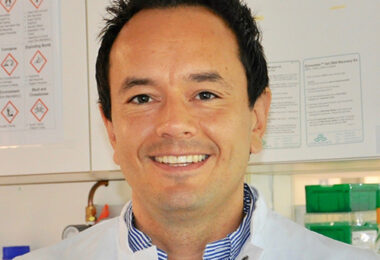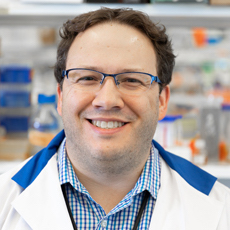The Murphy lab is focused on understanding how proteins within cells, specifically those involved in cell signaling, interact and how genetic mutations that perturb these interactions can cause disease.


The Murphy lab is focused on understanding how proteins within cells, specifically those involved in cell signaling, interact and how genetic mutations that perturb these interactions can cause disease.

The Montrose lab focuses on understanding and modulating host intrinsic and extrinsic factors to prevent and treat colorectal cancer and Inflammatory Bowel Disease.

The Kotlarz lab focuses on decoding genetic and immune signatures of Pediatric IBD by employing omics-based technologies and advanced preclinical models.

The Jackson lab explores unknown molecules, sensory pathways and cellular connections that underpin inflammation. They aim to uncover not only how tissue-wide homeostasis is achieved but also how its breakdown can be averted to prevent disease.

The Ivanov lab studies mechanisms that regulate cell-cell adhesions and epithelial barriers under normal homeostatic conditions and mechanisms controlling disruption and recovery of epithelial barriers during inflammation and infection.

The Hang lab aims to understand the chemical mechanisms that modulate host-microbe interactions and translate discoveries into new therapeutic approaches.

The Gumus lab develops and applies computational methods and collaborative tools to identify genetic biomarkers that drive disease. They seek to find new routes to analyze datasets utilizing the benefits of high-throughput (HT) technologies.

The Fuchs lab seeks to understand how stem cells use the apoptotic machinery for their elimination and the effect this has on different aspects of stem cell biology and stem cell-dependent processes.

The Fairn lab studies a variety of aspects related to vesicular and non-vesicular transport of lipids, lipid metabolism, membrane dynamics and the cell biology of immune cells.

The Cyster Lab deciphers the molecular cues that guide leukocyte migration and interaction events during tissue surveillance and immune response. They’re working to visualize immune response dynamics using advanced imaging and cell engineering.